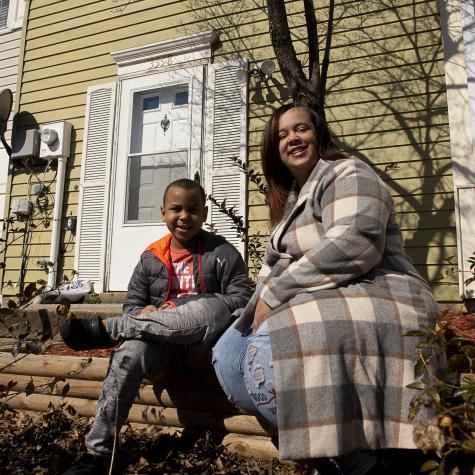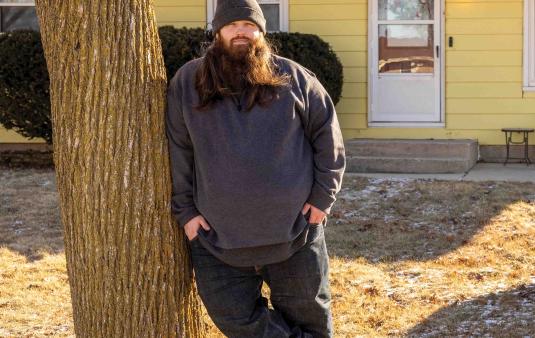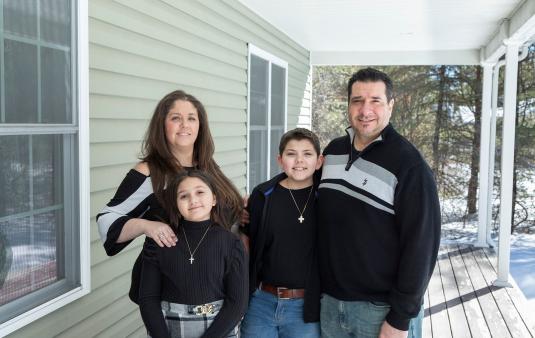How long does it take to foreclose on a home in New Jersey?
Foreclosure is a complicated multistep legal process that allows mortgage lenders to repossess homes from homeowners who have missed payments on their mortgage loan. New Jersey’s foreclosure process is particularly long and complicated because it involves an official lawsuit that occurs in court. New Jersey has one of the longest foreclosure timeframes in the country and can take 12 months or longer.
What is the best way to avoid foreclosure in New Jersey?
The first step for any homeowner facing foreclosure or eviction should be to contact a HUD-approved housing counselor to better understand your options. These services are typically free and offered by a local nonprofit.
BlueHub SUN may also be an option to prevent foreclosure and eviction. Find out if you qualify.
Steps in the New Jersey home foreclosure process
Understanding the steps involved in the foreclosure process can help New Jerseyites better navigate this difficult situation.
- Defaulting on the loan:
- Defaulting on a loan means that a payment was missed. The mortgage lender (or mortgage loan servicer) will probably send a letter in the mail and make phone calls notifying the borrower of the missed payment(s). In New Jersey, it typically takes 12-16 months after default to finalize a foreclosure.
- Notice of Intention to Foreclose:
- This is a letter sent in the mail by the lender and it can be sent as soon as the borrower defaults. The letter is essentially a warning that the lender intends to foreclose on the property unless the mortgage payments are brought current. The letter should include important information such as the amount of money owed, the date by which the borrower must bring the payments up to date, and information on how to pay. Typically, a lender will not send a Notice of Intention to Foreclose until a borrower is more than 120 days behind on their mortgage payments, but it could come much sooner.
- Filing the foreclosure complaint and summons in court:
- A complaint is a type of court filing. it is the official start of the foreclosure process, and it is filed in the Superior Court of New Jersey. The foreclosure complaint cannot be filed until 30-days after receiving the Notice of Intention to Foreclose letter and 120 days after the first missed payment (see #2). If the borrower repays everything owed within 30 days, then the complaint cannot be filed. But if the entire past due amount is not paid, then the lender will usually hire a foreclosure law firm to file the foreclosure complaint in court. The complaint will state the lender’s claim to the amount owed and the summons will require the borrower to appear in court. The complaint and summons must be hand-delivered though copies might be sent in the mail. If the lender cannot reach the borrower, the lender will ask the court for permission to publish notices in the newspaper instead. When the complaint is filed the borrower is now a “defendant” and the lender is the “plaintiff.” The complaint being filed is what begins the lawsuit.
- Responding to the complaint:
- The borrower has 35 days to file an Answer to the foreclosure complaint and 60 days to request mediation (sample Answers and instructions can be found here. If no Answer is filed, the lender can request a “default judgment,” and if granted, the property will be sold at a sheriff's sale. If the borrower does respond, the case will proceed to court, where the borrower and lender will present their cases.
- Notice of Intention to File for Final Judgment or Notice of Entry of Final Judgment:
- The lender’s attorneys send a letter (called the “Notice of Intention to File for Final Judgment”) offering a final chance to pay back the entire amount owed. If the borrower can pay this, they must write a letter within 10 days of receiving the notice and must state that they can pay everything owed within 45 days. The letter must be mailed by registered or certified mail with a return receipt.
- Motion for Final Judgment:
- The lender must request that the court finalize the amount owed. The lender will do this by filing a “Motion for Final Judgment” in court and it will also send the borrower a letter stating the amount owed. The calculation can be objected to, but this is unlikely to stop the foreclosure.
- Final Judgment Entered and Writ of Execution Issued:
- Final judgment is the end of the court process. Once this is entered, the lender then receives the “writ of execution,” which legally allows the lender to schedule a sheriff’s sale.
- Sheriff’s Sale:
- The sheriff’s sale must happen within 120 days of the sheriff’s receipt of the writ of execution. At this point the borrower has 3-7 months left in the property. Notice of the sale must be both published in a newspaper and posted to the door of the property.
- Adjournment:
- A borrower may request from the local county sheriff’s office two 30-day “adjournments,” or delays, of the sheriff’s sale. A fee may be required. The local county sheriff’s office should be contacted for a delay of the sale. If more than 60 days is needed, it can be requested, but the request may be denied. If the lender says no, the borrower can appeal the decision by going to the Superior Court in the county where the property is located and filing an Order to Show Cause, which is an emergency request asking a judge to delay the sale. A convincing reason will be needed, and the judge can deny the request.
- Community Wealth Preservation Program:
- Established in 2024, the Community Wealth Preservation Program provides eligible borrowers, and their next of kin, an opportunity to save their homes from foreclosure by bidding at a sheriff’s sale, before investors are able to bid. Prior to the sheriff’s sale, the lender is required to disclose the “upset price”, or minimum amount that the property will be sold for. Before bidding, borrowers must complete eight hours of housing counseling with a HUD-certified Housing Counselor. Borrowers who are able to pay a 3.5% deposit towards the upset price, who can demonstrate a qualifying hardship, and can provide proof of mortgage financing, may then bid to purchase their home. Borrowers will have 90 days to close on the property following a successful bid. The Program also provides that certain non-profits may bid at a sheriff's sale, provided that any properties purchased are sold or rented to households meeting certain affordability requirements.
- Redeeming the property:
- For 10 days after the sale occurs, the borrower can redeem the property by paying the lender the amount stated on the final judgment (see #7).
- Deed transfer:
- Once the deed transfers to the new owner, the borrower is no longer the legal owner of the property.
- Negotiating the move out:
- Following the transfer of the deed to the new owner, the borrower might be contacted by the new owner or by a real estate broker working for the lender. Sometimes the new owner will offer money to leave the property before an eviction occurs. This is often referred to as “cash for keys” and usually requires that the property is left in “broom swept” condition.
- Writ of Possession:
- If the new owner and the borrower do not arrange a date to move out, the new owner will request a “writ of possession” from the court. Once obtained, the new owner will schedule the eviction date with the county sheriff.
- Eviction or move out date:
- The sheriff will notify the borrower of the eviction date; a notice must be posted to the property door. At this point, if a borrower requires more time to move out, they can only do so by filing an “order to show cause.” But if the judge does not give additional time, the borrower must move out by the date agreed to with the lender or the sheriff will remove the borrower and the personal property from the home. Borrowers are not required to clean the property or remove furniture before moving out but they may not be able to get back anything left at the property.
It's important to note that the foreclosure process in New Jersey can be complex, and it's advisable to seek the assistance of an attorney if you're facing foreclosure. Additionally, there are certain protections and resources available to homeowners facing foreclosure, such as foreclosure counseling and mediation services, which can help homeowners explore their options and potentially avoid foreclosure.
BlueHub SUN can help homeowners in New Jersey
If you qualify, and if you’re willing to do what it takes, you may be able to work with BlueHub SUN as an alternative to foreclosure.
To apply, you have to:
- Be late on your mortgage payments, going through foreclosure or facing eviction due to foreclosure.
- Have a stable income, like a job, Social Security, a pension or disability payments.
- Live in Connecticut, Delaware, Illinois, Maryland, Massachusetts, Michigan, New Jersey, Ohio, Pennsylvania, Rhode Island or Wisconsin.
There is no fee to inquire or apply. You may be eligible even if you have multiple loans, poor credit, or a recent bankruptcy. If you have an upcoming foreclosure sale date, you may still be eligible. Please complete the inquiry form and a BlueHub SUN employee will reach out to you by phone to discuss your situation.
New Jersey Foreclosure Resources
Homeowners seeking assistance with credit counseling, housing counseling, legal counseling, or mental health counseling can reach out to these organizations for support.








